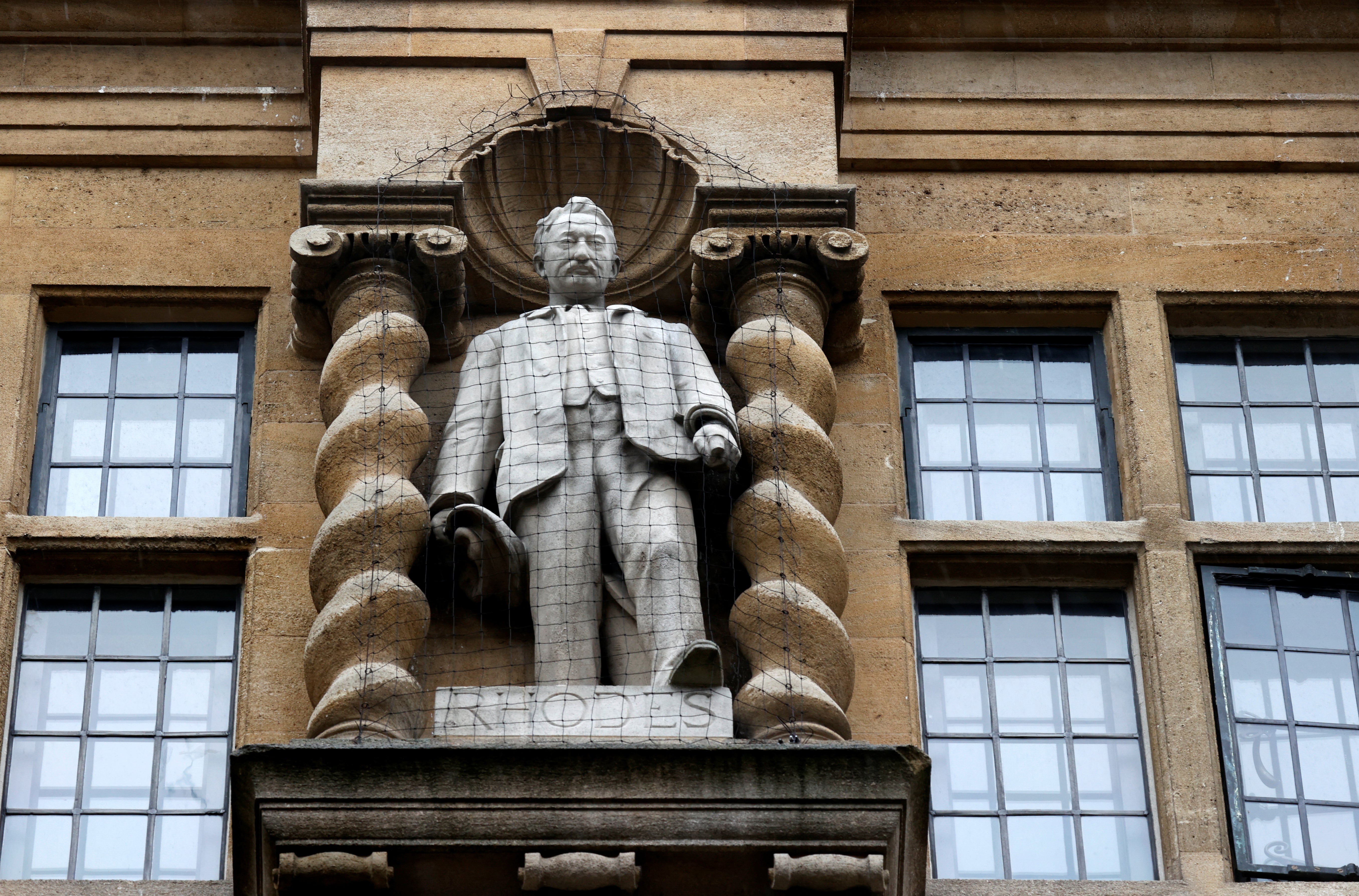Compensate Oxford students for Rhodes statue academic boycott, Downing Street says
Around 150 academics are putting pressure on the Oxford college

Oxford students should be given compensation if they miss out on teaching due to an academic boycott over a controversial statue, Downing Street has said.
Around 150 lecturers have announced they will refuse to do discretionary work at Oriel College, a constituent part of the institution.
The boycott is in response to the college's decision not to remove the statue of imperialist Cecil Rhodes, who as prime minister of the Cape Colony expropriated land from black Africans and effectively barred them from voting.
"I think students rightly expect to get a good deal for their investment in higher education and we would expect universities to take appropriate action should any student be seriously affected by these actions, which could include compensation," Boris Johnson's official spokesperson told reporters at a briefing in Westminster.
"We fully believe in protecting academic freedom, but universities have a duty to maintain access to good quality tuition as a priority, especially given the disruption the pandemic has caused students already."
The extent of any disruption the boycott may cause is unclear as the academics have said they will continue to take part in graduate supervision of Oriel students at master’s and DPhil level, and deliver lectures at which the college's students may be present.
Mr Rhodes was a white supremacist who believed that the "English race" were "the first race in the world". He said he supported expanding the British empire as it would mean "every acre added to our territory means the birth of more of the English race who otherwise would not be brought into existence". In his will he funded postgraduate scholarships at Oxford University.
In a statement, the academics taking part in the boycott said: “The collegiate university can only effectively and credibly work to eradicate racism and address the ongoing effects of colonialism today if all the colleges do so. Oriel College’s decision not to remove the statue of Cecil Rhodes undermines us all.
“Despite votes in favour from its student common rooms and despite an earlier vote of the governing body expressing their wish to remove it, Oriel has now decided not to.
“Faced with Oriel’s stubborn attachment to a statue that glorifies colonialism and the wealth it produced for the college, we feel we have no choice but to withdraw all discretionary work and goodwill collaborations.”
Students at the college have voted for the statue to be removed and the college's governing body previously backed the decision.
But the College's governing body now says the statue will not be removed for now due to the cost of taking it down.
“In light of the considerable obstacles to removal, Oriel’s governing body has decided not to begin the legal process for relocation of the memorials," it said in a statement three weeks ago.
Instead it said it would focus on the "contextualisation of the College’s relationship with Rhodes, as well as improving educational equality, diversity and inclusion amongst its student cohort and academic community".
Education secretary Gavin Williamson last month backed the decision not to remove the statue, describing it as "sensible and balanced" and claimed calls to take it down amounted to "censoring history".
Downing Street’s intervention came after a senior academic suggested that the college should place a sign saying "Sorry" around the neck of the statue.
Robert Gildea, professor emeritus of modern history at Oxford, one of the signatories of the boycott, said it was a way of "putting pressure" on the college after many alternatives had failed.
"One of the options offered by the commission was to retain and contextualise, so if the college put up a notice explaining who Cecil Rhodes was that would be fine,” he told BBC Radio 4’s Today programme.
"If the college put a placard around his neck at lunchtime today saying 'Sorry' that would also be fine."
Professor Gildea added that sculptor Antony Gormley's suggestion that the statue is turned round to face the wall was also a "very interesting idea".
Join our commenting forum
Join thought-provoking conversations, follow other Independent readers and see their replies
Comments
Bookmark popover
Removed from bookmarks